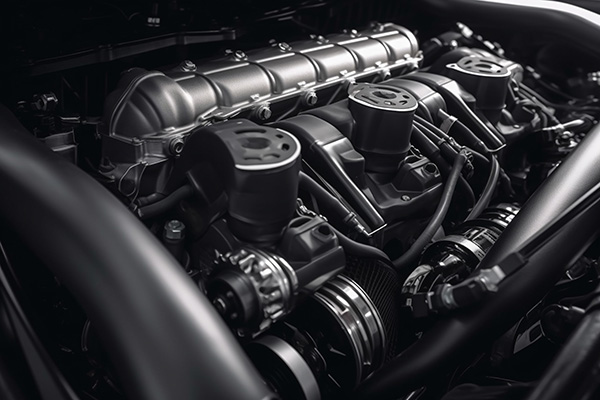
Are you experiencing sluggish performance, decreased fuel efficiency, or rough idling in your car? These issues could be signs that it's time for a tune-up.
Now the question arises: When exactly should you consider a tune-up procedure for your vehicle?
The Significance of Tune-Ups
Tune-ups encompasses a comprehensive set of maintenance procedures to optimize your vehicle's performance and efficiency. Despite the advancements in automotive technology and electronic systems, regular tune-ups remain crucial to ensure your car's smooth operation and longevity.
Ignition System
The ignition system ignites the air-fuel mixture in the engine's cylinders, initiating the combustion process. During a tune-up, the ignition system is thoroughly inspected, and components such as spark plugs, ignition coils, distributor cap, and rotor (if applicable) are checked for wear and replaced if necessary. Properly functioning ignition components are essential for reliable engine performance and fuel efficiency.
Fuel System
The fuel system delivers fuel from the tank to the engine, where it is mixed with air and combusted to generate power. A tune-up involves inspecting and cleaning components such as the fuel injectors, fuel filter, and fuel pump to ensure proper fuel delivery and combustion. The fuel pressure and injector flow rates may also be tested to diagnose any issues affecting fuel system performance.
Air Intake System
The air intake system delivers clean air to the engine for combustion, contributing to efficient operation and optimal performance. During a tune-up, the air filter is inspected and replaced if dirty or clogged, allowing for unrestricted airflow.
Emission Control System
Modern vehicles are equipped with emission control systems designed to reduce harmful pollutants emitted from the exhaust. As part of a tune-up, the emission control system is inspected, and components such as the oxygen sensor, catalytic converter, and evaporative emissions (EVAP) system are checked for proper functioning. Addressing any issues with the emission control system helps ensure compliance with environmental regulations and optimal engine performance.
Engine Components
Various engine components, including belts, hoses, and fluids, are inspected and replaced as needed during a tune-up. This may include checking the condition and tension of the drive belts, inspecting coolant hoses for leaks or wear, and performing an oil change to maintain proper lubrication and cooling of engine components.
Additionally, the PCV (positive crankcase ventilation) valve is inspected and replaced if necessary to prevent crankcase pressure buildup and maintain engine efficiency.
Signs That Your Car Needs a Tune-Up
Decreased Performance
If you notice a decrease in your car's overall performance, such as sluggish acceleration, reduced power, or difficulty starting, it may be time for a tune-up. Over time, wear and tear on engine components can lead to decreased performance, which can be addressed through a comprehensive tune-up procedure.
Poor Fuel Efficiency
A sudden drop in fuel efficiency can indicate underlying issues with your vehicle's engine or fuel system. Dirty fuel injectors, worn spark plugs, or malfunctioning sensors can all contribute to decreased fuel efficiency, highlighting the need for a tune-up to address these issues and improve mileage.
Rough Idling or Stalling
An engine that idles roughly or stalls frequently may benefit from a tune-up to address issues such as dirty throttle bodies, clogged fuel filters, or faulty ignition components. Tuning up the engine can restore smooth idling and prevent stalling, ensuring a more reliable driving experience.
Check Engine Light
If the check engine light illuminates on your dashboard, it's essential to have your vehicle inspected by a qualified technician. While the check engine light can indicate a range of issues, including minor faults or more serious problems, a tune-up may be necessary to address underlying issues affecting engine performance.
Benefits of Proactive Maintenance
Regular tune-ups help maintain optimal engine performance, resulting in smoother acceleration, increased power, and overall improved driving dynamics. Tune-ups ensure that your car operates at its best by addressing worn or faulty components.
A properly tuned engine operates more efficiently, improving fuel economy and reducing emissions. By addressing issues that contribute to decreased fuel efficiency, such as dirty air filters or worn spark plugs, tune-ups can help you save money at the pump.
Tune-ups are a form of preventive maintenance that helps identify and address potential problems before they escalate into costly repairs. By conducting regular tune-ups, you can prolong the lifespan of your vehicle and avoid unexpected breakdowns.
Need a tune-up? Contact Prestige Auto Repair, and our team will take care of your car - even if it's not a tune-up!